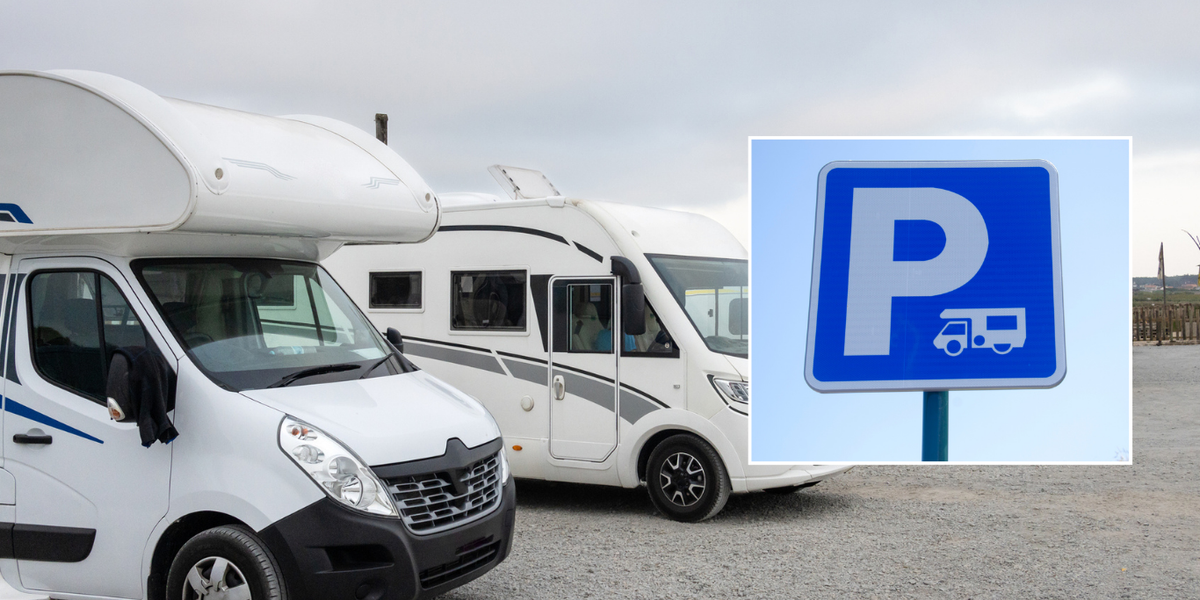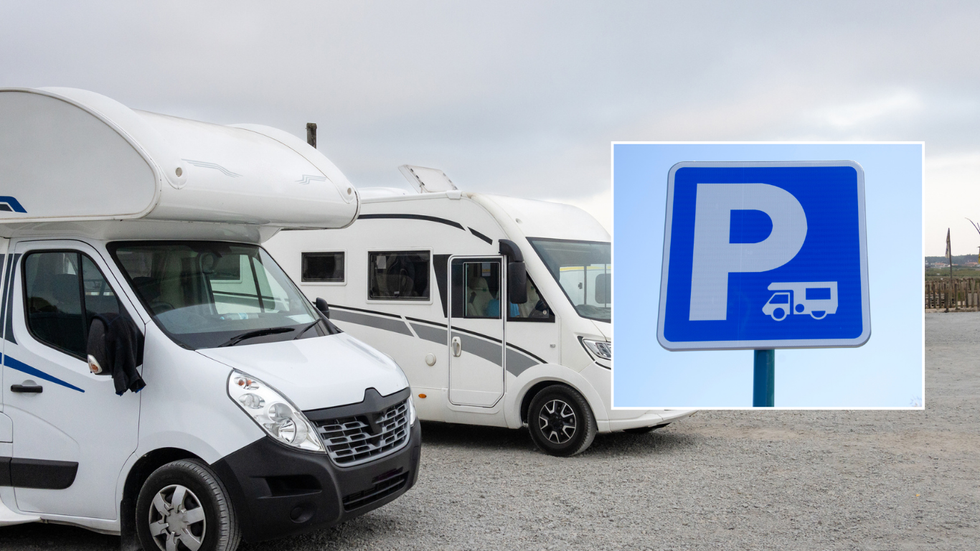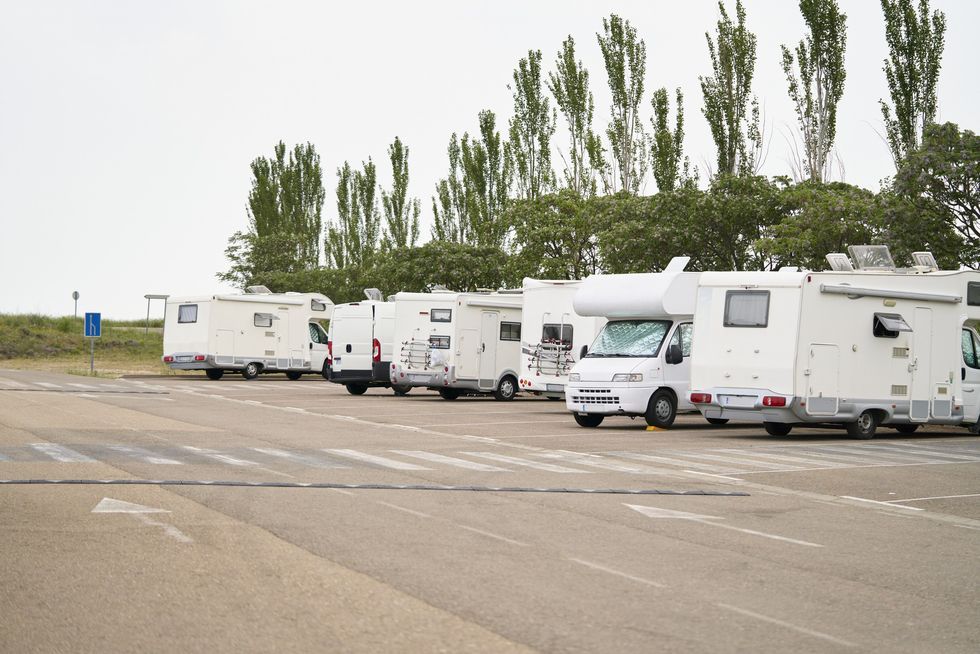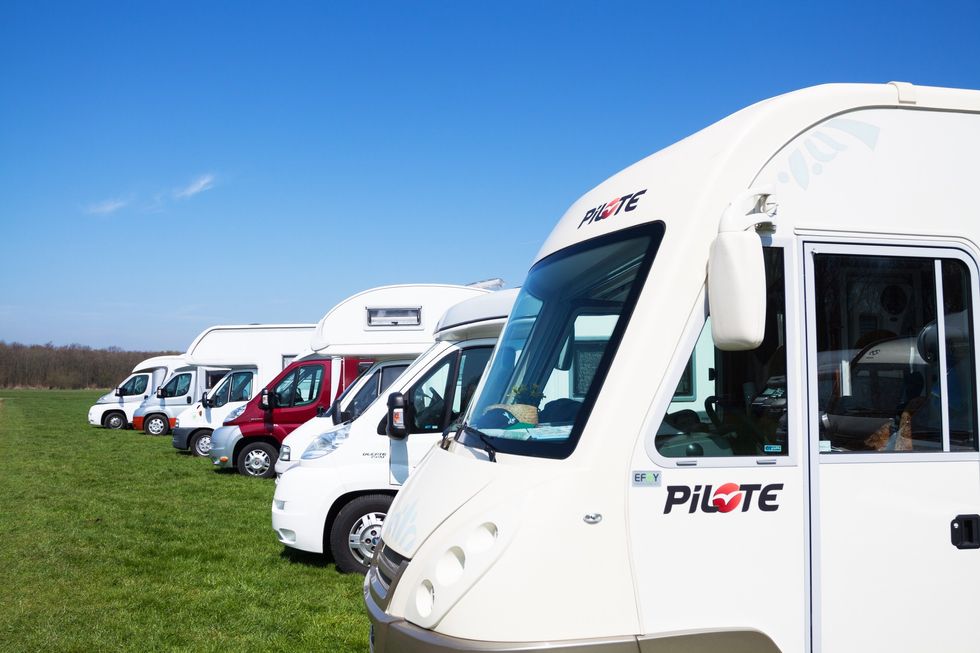



Local councils have been urged to adopt European-style "aires" for motorhomes and campervans, which have been growing in popularity across the continent.
It comes after research highlighted the significant economic benefits open spaces can have for local communities and drivers, which have seen more parking restrictions imposed on them in the past year.
The Campaign for Real Aires (CAMpRA) found that over 80 per cent of motorcaravan owners would visit and spend money in new areas if these dedicated parking facilities were available, particularly outside peak season.
Aires provide safe overnight parking spaces for self-contained motorhomes, often including service points for water and waste disposal.

The Campaign for Real Aires has called for more parking sites to be introduced for motorhomes and campervans
GETTY
The concept, widely established across Europe, allows motorhomes and campervans to stay in towns and cities for up to 48 hours for a set price.
With over 412,000 of the larger vehicles registered in the UK, the campaign highlighted an opportunity for councils to tap into this rapidly growing tourism sector while generating revenue for local businesses.
The survey found that 90 per cent of respondents own fully self-contained vehicles with onboard toilets and water facilities, making them suitable for aires-style parking.
Donald Macdonald, founder and President of CAMpRA, said: "This research confirms previous surveys that have been carried out over a number of years regarding how much people spend when they visit somewhere in a motorhome or campervan."

Local councils have been limiting the number of overnight parking spots due to resident concerns
GETTY
While aires can provide a useful parking option for motorhomes, many local authorities have begun limiting their accessibility due to public concerns.
Most recently, Hampshire County Council introduced a new overnight parking ban for motorhomes and campervans between 8pm and 8am after residents complained that the larger vehicles clogged up streets.
Macdonald added: "It gives us some really solid statistical evidence that we can share with local authorities and businesses to help them understand the importance of trying to accommodate this new style of tourism and the clear financial advantage to local communities that embrace this type of tourism."
The survey revealed that owners of the vehicles contribute an average of £51 per day to local businesses, alongside spending £23 per night on accommodation.
Respondents indicated they would pay £10 for a basic aire without services, £15 for facilities including waste disposal points and water, and £6 for service point access alone.
Steve Haywood, managing director of CAMpRA, explained that there is a "clear demand" for largervehicles, which was emphasised by post-Brexit travel restrictions, which caused Britons to invest in more staycations.
Several councils have already implemented successful aires, demonstrating their viability and positive impact on local communities. Cleethorpes recently opened a dedicated council site allowing self-contained motorhomes to park for up to 48 hours, providing much-needed facilities for visitors.
In Fleetwood, Lancashire, the introduction of overnight parking on the seafront car park for £5 per night has delivered substantial revenue increases for local shops.

Aires offer motorhomes a place to park overnight
GETTY
Haywood noted: "More councils are seeing the benefits of providing facilities over the cost to local taxpayers of enforcement and bans, not to mention the loss of potential revenue to businesses.
"In addition, every council that has operated a 12-month trial aire, has been successful and made the overnight parking permanent."
Currently, a third of motorhome and campervan owners admit to sleeping in lay-bys, likely due to overnight parking restrictions and limited alternatives.
The survey revealed widespread dissatisfaction, with 88 per cent of respondents unhappy with overnight parking availability, 82 per cent with service points, and a significant majority citing poor infrastructure and unwelcoming attitudes compared to Europe.
